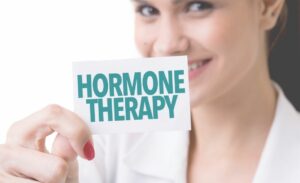Why are There Vitamins in Our Offices?
Patients who are new to our clinic are often surprised to see that we sell vitamins (we refer to them as supplements) in all our offices. Well, we feel that supplements are an excellent natural treatment. Here is why… Believe it or not, there are many symptoms that can manifest due to vitamin or mineral deficiencies. For example, patients who are constantly tired can benefit from supplementing their diet with a B-Vitamin complex. There are many B-Complexes to choose from, but we would like to add that all vitamins are not created equal. In general, the vitamins found in your local drugstore or grocery store are not high quality. These are not strong enough to raise blood levels of B vitamins and are not even in the correct form for your body to absorb them. The fastest way to check to see if you are taking the correct form is by looking at the Vitamin B12 in the complex. You want your B12 to be in the form of Methylcobalamin. However, most drugstore vitamins are going to be in the cheaper to manufacture form of Cyanocobalamin. The good news, however, is that you cannot overdose on B vitamins. They are



